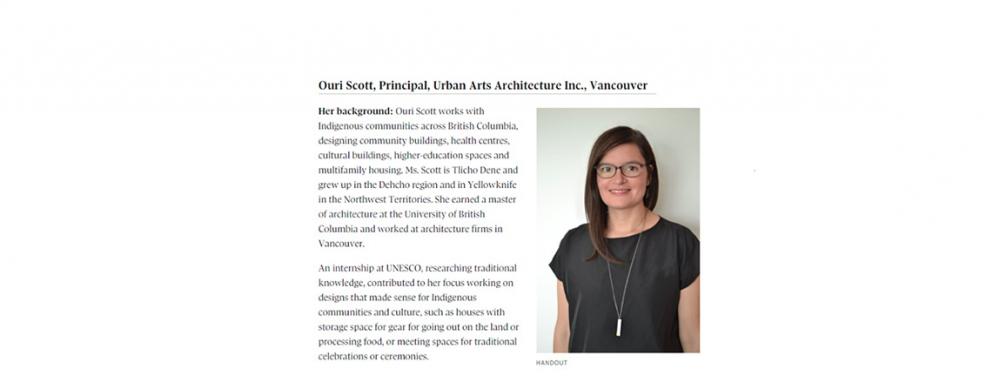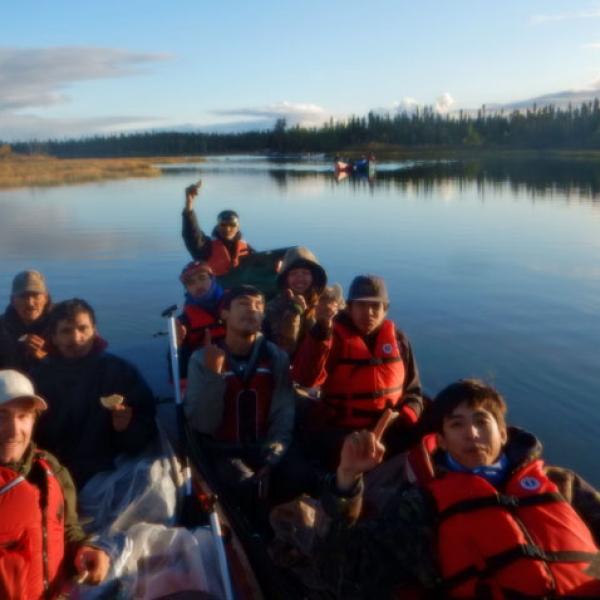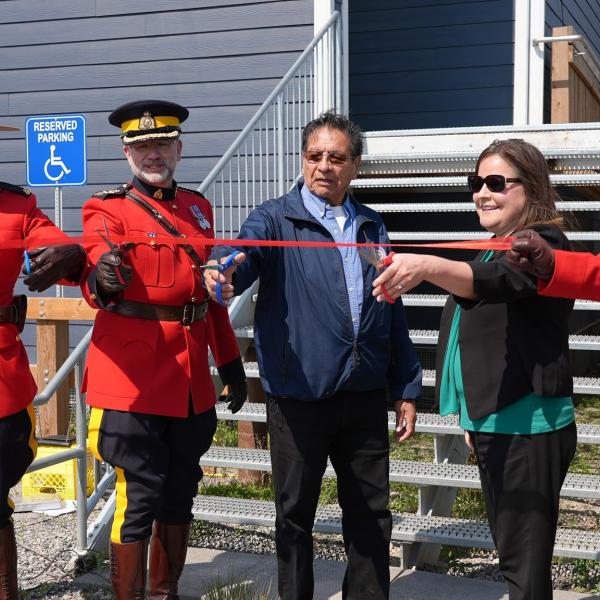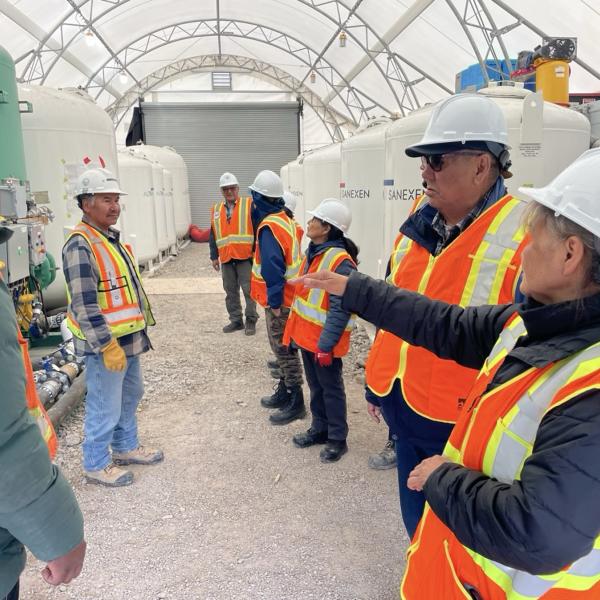Ouri Scott, Principal, Urban Arts Architecture Inc., Vancouver
Originally posted on The Globe and Mail - Article - Five women on what it’s like to work in commercial real estate.
To mark International Women’s Day next Monday, March 8, we spoke to five Canadian women in the industry about their challenges, successes and what they dream of for the future.
Ouri Scott, Principal, Urban Arts Architecture Inc., Vancouver
Her background: Ouri Scott works with Indigenous communities across British Columbia, designing community buildings, health centres, cultural buildings, higher-education spaces and multifamily housing. Ms. Scott is Tlicho Dene and grew up in the Dehcho region and in Yellowknife in the Northwest Territories. She earned a master of architecture at the University of British Columbia and worked at architecture firms in Vancouver.
An internship at UNESCO, researching traditional knowledge, contributed to her focus working on designs that made sense for Indigenous communities and culture, such as houses with storage space for gear for going out on the land or processing food, or meeting spaces for traditional celebrations or ceremonies.
Challenges for women: After graduating, Ms. Scott worked at a large architecture firm run predominantly by white men. Despite the desire to support women, in reality young white men were given more opportunities there, she says. As a result, Ms. Scott almost ran out of time to get the hours she needed to be registered as an architect.
Many women leave the industry when they have children, Ms. Scott notes. While on maternity leave, she tried to stay connected to the office so as not to fall behind. She also made an effort in workplaces not to be seen as a mother, as she had seen that women who were identified as mothers have less opportunities.
Advice for other women: Accept that you can’t do it all and do not feel guilty about that, Ms. Scott suggests. Lean on friends and families for support.
A dream for the future: “We say we value children and work-life balance, but we don’t model it as an industry,” she says. “Making that be real, we would all be healthier and happier.”







